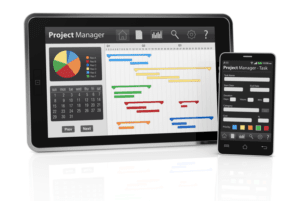
With AI-powered software, organizations can seamlessly automate tasks like data entry, reconciliations, and report generation. The key mechanisms through which AI transforms accounting processes include handling routine tasks, minimizing human errors, and enhancing the precision of transactions and financial statements. Accounting technology encompasses a wide array of tools, software, and systems that play a crucial role in accounting.

The Future of Accounting Technology
It is a more complete and accurate alternative to single-entry accounting, which records transactions only once. Manage your money with confidence using accounting software built for legal professionals—not just accountants. The last thing you want is software that slows down processes, randomly crashes, or leaves your team frustrated. The key, both speakers agree, is in communicating the benefits – not just for the firm, but for individual team members. Because SmartVault and Financial Cents are integrated, the firm also benefits from streamlining processes like client creation. When you create a client in SmartVault, it automatically populates in Financial Cents, so you don’t have duplicate data entry.
Organizations
From transformational accounting practices spearheaded by blockchain, to new ways of working in the wake of the pandemic, accountancy is going to see some serious upheaval in 2024 and beyond. Here at Tech.co, though, we don’t just jump on buzzwords and trends – we’ve spoken to leading industry figures and conducted our own independent research, to find out exactly how companies are making changes. There’s no question that digital transformation has radically changed the playing field.
accounting technology trends to watch in 2024 (and how to use them to your advantage)

Entertainment is a major sector, but there are also significant employers in aerospace, manufacturing, technology and life sciences. She said the number of students getting bachelor’s degrees in accounting is down and cited Financial Times data on the number of people sitting for CPA exams, which hit its lowest level in 17 years. Here are quick answers to some frequently asked questions about accounting and technology. Social media is going to be emphasized as a critical sales and marketing tool to engage with current clients and attract new ones. Automation isn’t being used as a replacement in the accounting field, it’s an enhancement tool.
Robotic process automation (RPA)
- Another issue is uncertainty created during an election year where there can be impacts to local, state and federal policies.
- In this guide, we explore the latest accounting trends you need to know about and explain why they’re important to businesses of all shapes and sizes.
- The integration of big data, analytics, and business intelligence will continue to play a major role in how financial information is processed and utilized in accounting processes.
- For example, companies can use analytics to understand which customers are most profitable in real time—insight that typically requires a separate analytics solution outside their FMS.
- For example, it will help businesses trust each other when it comes to managing transactions – there’s nowhere to hide from an unpaid invoice if it’s on the blockchain.
Additionally, accounting teams can analyze historical performance data to create forecasts, facilitating informed decision-making during critical business choices. Overall, the integration of modern data analysis tools with accounting processes enhances the capabilities of accountants in interpreting and utilizing financial data for the benefit of businesses. In the modern business landscape, data plays a pivotal role, prompting companies to increasingly adopt big-data technology for comprehensive data gathering, analysis, and strategic decision-making. The term “big data” denotes the vast amount of data collected by organizations from various sources. To stay competitive, firms must devise ways in which their accounting teams can store data, extract valuable insights, and convert it into actionable knowledge.
- Integrity Network members typically work full time in their industry profession and review content for Accounting.com as a side project.
- To provide richer business insights and financial management reporting, organizations require data warehouses, business intelligence solutions, and reporting tools in addition to their FMS.
- Comparatively to the 40% of UK businesses who state to be currently piloting or using AI, over half (54%) of accountants and bookkeepers are embracing the technology.
- Accountants, for example, can put their uniquely human skills to work transforming the insights extracted from high-quality data into more effective financial planning and reporting.
- Delivered as SaaS, our solutions seamlessly integrate bi-directionally with multiple systems including ERPs, HR, CRM, Payroll, and banks.
- Please see /about to learn more about our global network of member firms.

Get $30 off your tax filing job today and access an affordable, licensed Tax Professional. With a more secure, easy-to-use platform and an average Pro experience of 12 years, there’s no beating Taxfyle. Save more by mixing and matching the bookkeeping, tax, and consultation accounting in tech industry services you need. In this hands-on video, Zapier expert Heather Satterley outlines how to create the 10 automations every accounting firm should be using. The pros and cons of automating client relationships, and what a hybrid approach looks like for your accounting firm.
How to make accounting technology work for you
Combining transactions and analytics in one system allows for instant processing, consolidation, and reporting of financial data that’s stored in the FMS. This system enables the simultaneous processing of transactions and analytics, providing real-time access to financial data. Once a transaction occurs, the same system can immediately use it for reporting and analysis. Financial management systems were created to make accounting tasks easier and support the creation of periodic financial reports. This process used to be strict and straightforward, starting with recording transactions and ending with updating the general ledger. As transactions go through accounting, some details are taken out, and summarized entries are used to update balances.
- Third-party involvement benefits customers because it offers a level of trust that might not be typical of the smaller, independent business they’re looking to buy from.
- Intelligent automation (IA) is capable of mimicking human interaction and can even understand inferred meaning in client communication and adapt to an activity based on historical data.
- Each block on the chain contains a number of transactions that can be viewed and verified by everyone on the network.
- PwC has adopted a hybrid environment in the office and tries to be deliberate about making connections when workers are together in the office.
- There are applications for companies on both the front end and the back end to support a wide range of applications.
Technology industry accounting and reporting insights
AI algorithms allow machines to take over time-consuming, repetitive, and redundant tasks. Rather than just crunch numbers, with the support of AI, financial professionals will be able to spend more time delivering actionable insight. The more finance professionals rely on AI to do what it does best—analyze and process a tremendous amount of data and take care of monotonous tasks—the more time humans will recover to do what they do best. New technology has changed the expectations clients have when working with companies, and it’s the same for accounting. Robotic Process Automation (RPA) is a widely leveraged technology for automating rule-based tasks and eliminating manual data entry in companies.
Key Accounting Technologies That Are Transforming Accounting Processes
That includes nonprofits, schools and executing on our client obligations. We will expand our overall footprint.” He was elevated to the role at a time when the workplace underwent a major transformation due to the hybrid nature of many companies. Future-Facing Accounting RolesSmith has seen the evolution of the workforce firsthand.